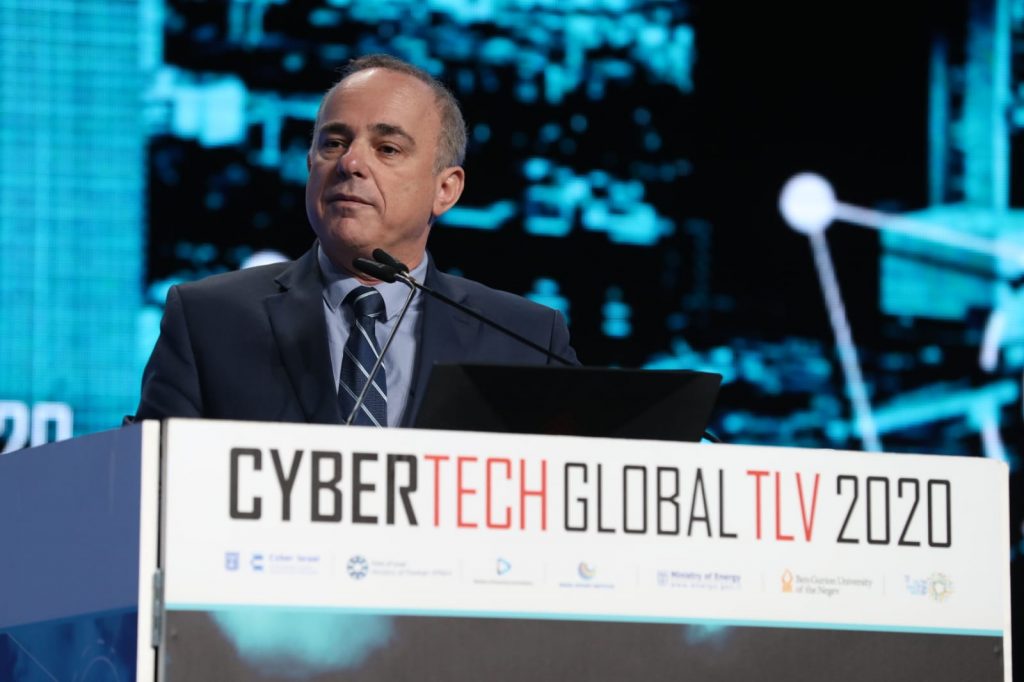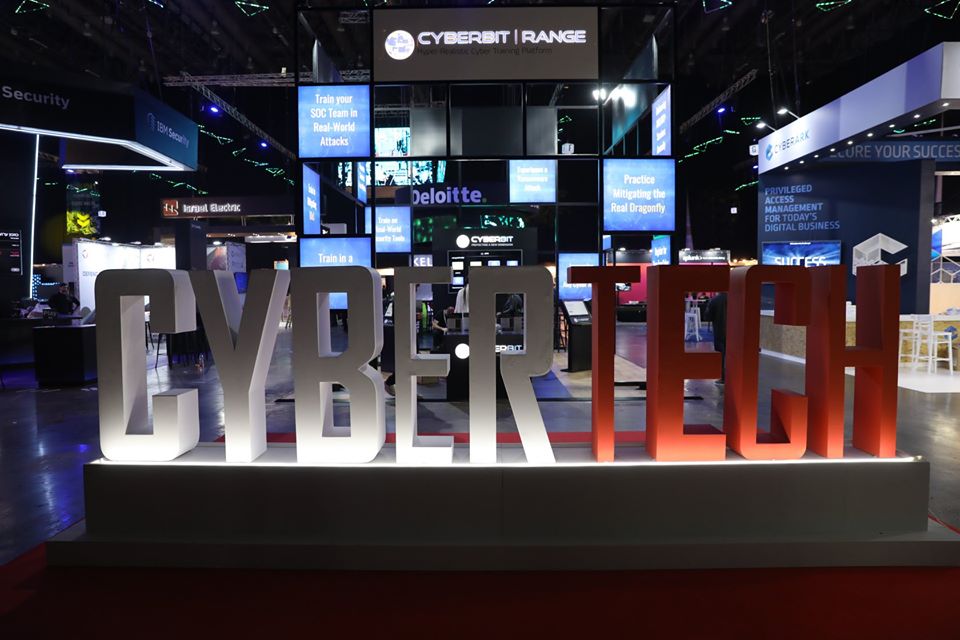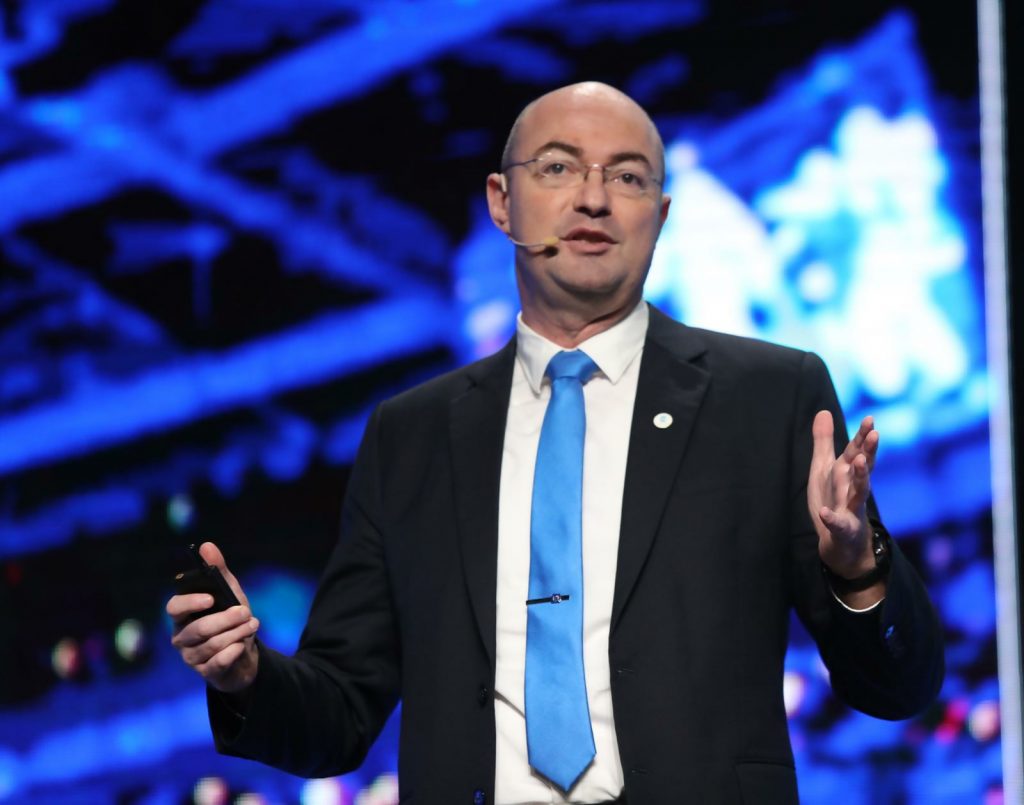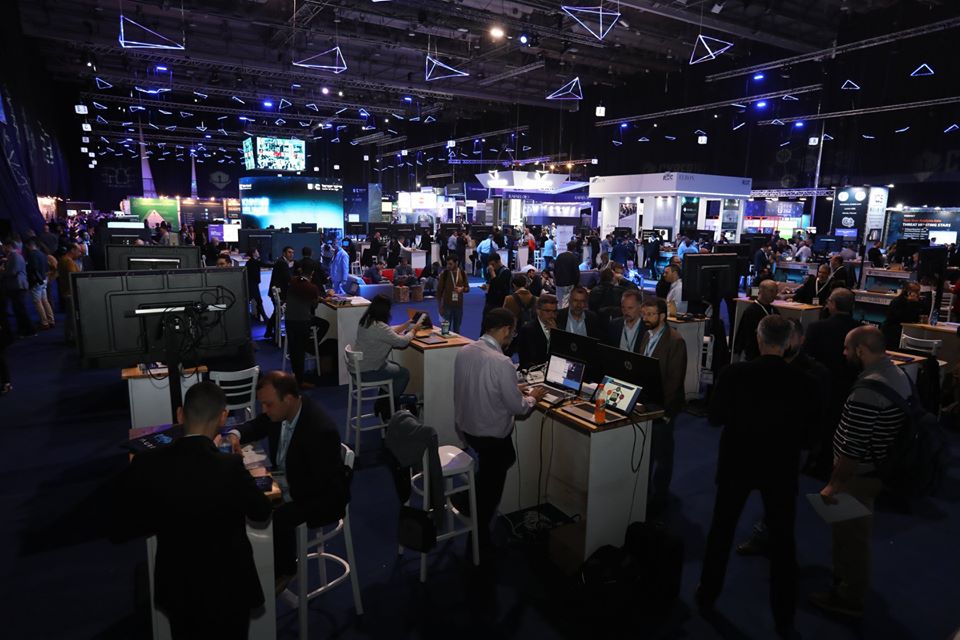Israel detected and neutralized “a very serious cyber attempt” to paralyze and take over one of the country’s main power stations a few months ago, Energy Minister Yuval Steinitz announced at the Cybertech 2020 conference in Tel Aviv on Wednesday.
Speaking at the event, which is hosting some 20,000 attendees from 94 countries over the course of three days, Steinitz said that the cyber attack was a “very serious, sophisticated attempt” and added that the attempted assault targeted a number of sites.

Steinitz was a last minute replacement at the confab for Israeli Prime Minister Benjamin Netanyahu, who was at the White House alongside US President Donald Trump as he unveiled a “peace plan” that calls for the Israeli annexation of areas in the Jordan Valley and Israeli control of a unified Jerusalem. Israeli Minister of Defense Naftali Bennett was also scheduled to make an appearance but did not attend.
Steinitz said that the cyber attempt was one of only a few very serious cyber attacks on Israeli energy infrastructure to date but warned of the severity of such a threat.
SEE ALSO: Cybertech 2019: Israel Shows How Collaboration, Creative Technology Can Help Thwart Cyber Attacks
“The disasters and calamities that can be caused by cyber attacks on nuclear reactors and power stations are beyond imagination,” he explained. “The most sensitive sector is the energy sector, for a very simple reason. If someone manages in time of war or conflict to paralyze our energy sector and our water supply chain, this is a total disaster.”
“You can destroy the entire country, you can paralyze our ability to defend ourselves against regular military and terrorist threats,” he added.
As a result of this attempt, and others, Steinitz said, the Energy Ministry established a cyber center in Beersheba which monitors and defends government and privately-owned energy infrastructure. The center works alongside Israel’s Computer Emergency Response Team (CERT,) which also set up operations in the southern Israeli city.

The Cybertech 2020 confab, held January 28-30 at the Tel Aviv Exhibition Grounds, is the second-largest cybersecurity conference in the world after the United States. This year, it has attracted some 180 speakers from across sub-sectors in the cybersecurity ecosystem, including international tech giants such as IBM Security, Deloitte, and Microsoft as well as local Israeli cybersecurity firms like Check Point Software, CyberArk, and Cybereason.
The event’s exhibition hall has booths from key Israeli security agencies and companies including the Israel Police Cyber Unit, the Mossad, and Israel Aerospace Industries alongside exhibits from cybersecurity companies and venture capital firms. Cybertech also offers a startup pavilion with over 70 companies like Cisoteria and Cyber Armor.
For a special panel with an international perspective on 5G and Communication, the conference welcomed communications ministers from around the world, including Ursula Owusu-Ekuful, minister of communications in Ghana, Jeremy Godfrey, commissioner for the Commission for Communications Regulation (ComReg) in the Republic of Ireland, Leonardo Euler De Morais, president of the National Telecommunications Authority (ANATEL) in Brazil, and Marian Murgulet, secretary of state and chief information officer of Romania.
Cyber threats at the 2020 Olympic Games
Sign up for our free weekly newsletter
SubscribeWith the 2020 Olympic Games set to kick off this summer, the threat of large-scale cyber attacks in Tokyo are imminent, warned Yigal Inna, director-general of the Israel National Cyber Directorate. As Japanese organizers craft new cybersecurity policies to raise the country’s resilience, they should look to the Israeli model to help combat the threats that are piling up, he said at the confab.

Unna explained that Israel’s method of exposing cyber threats showcase a faster, higher, stronger approach — similar to the approach used by Olympic athletes to be the best in their sport.
“Speed is the name of the game in cyber – the race is against the clock, so Israel is taking a proactive approach that anticipates the critical vulnerabilities for penetrating enterprise information systems,” he told the audience, adding that Israel’s goal is to prevent a broad attack on its own economy. He noted that as part of the initiative, over 3,000 companies in Israel are receiving specific guidelines on how to avoid a particular cyber threat.
Yiftach Ron-Tal, chairman of the Israel Electric Corporation (IEC), who told the conference that the company experienced “an average of 11,000 cyber-suspected events” every second in 2019, also announced that IEC signed an agreement to collaborate with a leading Japanese utility corporation on cyber protection which includes support for the company at the Olympic Games.
“There is no doubt that the organizers of Tokyo 2020 Olympics are facing an enormous challenge. The enormous influence perimeter created by such a massive event is always a preferred target for cyber attackers,” Ron-Tal said.
Ron-Tal, an ex-commander of IDF Ground Forces and chairman of Israel Ports Development & Assets Company (IPC), said that mass events, like the upcoming Olympic Games, are “a preferred cyber target of hackers” and that nations worldwide “must join forces and build resistance against cyber threats and cyber terrorism.”
SEE ALSO: Cyber Week 2019: PM Says Israel’s Cyber Efforts Helped Foil Terror Attacks In Dozens Of Countries
Unna agreed that international partnerships and collaborations are key to succeeding in the battle to combat cyber threats.
“No country can do cybersecurity by itself,” he said, “We need partnerships.”
Amid a desire to collaborate, Israel’s cybersecurity sector is doing well on its own. There are currently 436 active cybersecurity companies operating in Israel, according to a report released this month from IVC Research Center, an increase from 379 in 2016. While there were just 12 new cybersecurity firms set up in 2019, compared to 54 in 2013 and 86 in 2015, according to the report, Ron-Tal noted that 2019 set a new record in fundraising for investments in Israeli startups by US firms by October 2019, with $1.8 billion given in 81 deals. The funds raised by cybersecurity firms were given to the more established companies, he pointed out.
Related posts

Editors’ & Readers’ Choice: 10 Favorite NoCamels Articles

Forward Facing: What Does The Future Hold For Israeli High-Tech?

Impact Innovation: Israeli Startups That Could Shape Our Future




Facebook comments